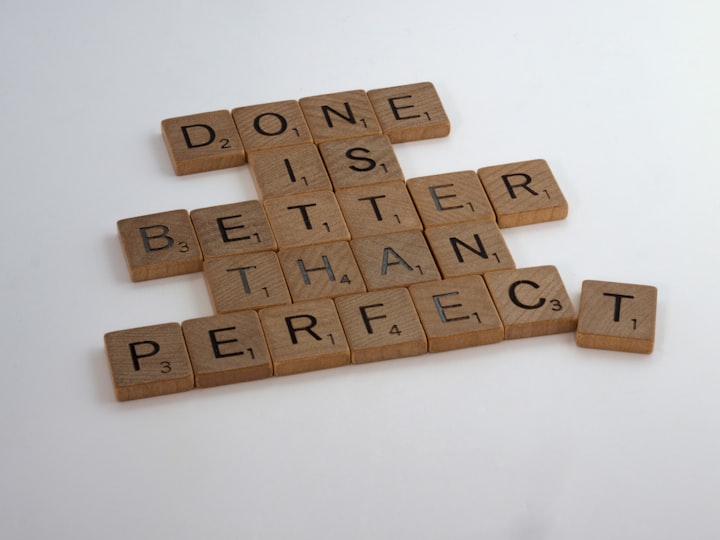Do You Know Your Own Toxic Trait?
Here’s what I did to become self-aware of mine

Is it just me, or does everyone dislike that interview question about your strengths and weaknesses? For many, myself included, it is a hard question to answer, especially when my main strength is also my main weakness. More on that later.
The real question is, can a personal strength or weakness turn into a toxic trait? The dictionary defines the word toxic as something poisonous. Maybe we’re unaware of personal characteristics that have become so toxic, they have become a toxic trait others use to describe us. Maybe we are poisoning ourselves, or worse, the people around us without us being aware. How do we find out if we have turned into a toxic person? Are we influencing others, or just ourselves?
What Is a Toxic Person?
According to Brennan, MD., a “toxic person is anyone whose behavior adds negativity and upset to your life.” It’s almost as if their goal is to make others unhappy or unsure of themselves. Mental Health America has some fast facts stating that toxic friends are common. As many as 84% of women and 75% of men reported having a toxic friend at some point. But, how can we tell when a person is being toxic? We must try to identify toxic traits or influences.
Mental Health America identifies 8 traits of toxic people, including manipulation, making you feel bad about yourself, being judgmental, negativity, passive aggression, self-centeredness, difficulty with anger management, and controlling. As they say, knowing is half the battle, and identifying these traits in other people will help us set boundaries to improve our mental health.
However, we need to be self-aware of our traits and see if we possess any toxic ones. Here’s what I did to become self-aware of mine, and I invite you to give it a try to find yours.
The Big Five Personality Test
I started self-evaluating my strengths and weaknesses just like I did to prepare for a job interview. I came up with a list with no more than five traits for each. I realized that one of the traits could be considered both a strength and a weakness. Not good. I put my research hat on. I wondered if there was a Myers-Briggs self-assessment equivalent, but to detect toxic traits. What I found was the Big Five personality quiz.
The Big Five model is a trait model used to understand personality factors. It is also an accepted personality theory in the scientific community. It is called the Big Five because it uses five dimensions of personality. These include openness, conscientiousness, extraversion, agreeableness, and neuroticism.
The openness dimension is easy to understand as it describes an open person and their ability to think abstractly. People with high scores tend to be “creative, adventurous, and intellectual.” Conscientiousness is for those who are goal-oriented and persistent. People with a high score are organized and determined and always searching for long-term achievement. Extraversion is for those who seek stimulation from the outside world and engage actively in seeking friendship, admiration, power, status, and so on. Agreeableness describes those who put the needs of others ahead of themselves. Simply put, they show a great deal of empathy. Lastly, neuroticism describes those who respond to stressors or negative emotions, such as fear and sadness.
If you’re curious about your own traits, feel free to take the quiz. Let me share my Big Five score with you:
- Openness: 79%
- Conscientiousness: 81%
- Extraversion: 60%
- Agreeableness: 62.5%
- Neuroticism: 35%
As shown, my highest score is in the conscientiousness dimension, and I agree with it. I am driven, goal-oriented, and persistent. But, the other side of the coin brings me to my own possible toxic trait: perfectionism.
My Toxic Trait
I am a perfectionist. Many people think perfectionism is a positive trait, and more often than not, it is. However, there comes a time when we want something to be so perfect we become control freaks with impossibly high standards. When those high standards are so hard to reach, we start to fail. Feelings of failure then may lead to depression, stress, or anxiety.
When I became self-aware of my perfectionism, it opened up opportunities I realized I was depriving myself of. As a matter of fact, when I realized nothing is ever perfect, I stopped at good enough and moved forward with projects.
For years, I wanted to be a writer, but I never moved forward with the dream. I wrote and wrote but never published. I never reached out to publications because everything I wrote wasn’t perfect. Not anymore. By being self-aware of my perfectionism, and its negative traits, I realized I was stopping myself from being a writer. Until I became one. We have to remember,
“Self-awareness gives you the capacity to learn from your mistakes as well as your successes. It enables you to keep growing.” — Lawrence Bossidy
The original story appeared on Medium.
This article is for informational purposes only.
About the Creator
Diana Lotti
Traveler. Photographer. Storyteller. MBA. Writing about first-hand experiences involving travel, photography, and self-development. Twitter: @DianaILotti and IG: @dlottiphotography






Comments
There are no comments for this story
Be the first to respond and start the conversation.